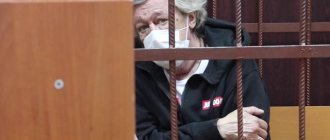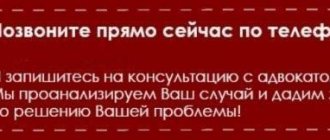Beating a minor is a criminal offense that is regulated by several articles of the Criminal Code of the Russian Federation (Articles 111, 112, 115, 116 and 117), depending on the type of beating.
All of these articles explain the meaning of the concepts specified in them and determine the degree of responsibility for a crime in relation to each citizen of the Russian Federation. But the fact that the victim was a minor child will serve as an aggravating circumstance.
General provisions
Children's rights are enshrined in our country in many legislative norms, ranging from the Constitution of the Russian Federation and federal legislative acts to various codes. But still, this issue is considered more extensively in the Family Code of the Russian Federation and Federal Law-214 “On the basic guarantees of the rights of the child in the Russian Federation.” In addition, key rights are also enshrined at the international level in the UN Convention.
At the legislative level, it is determined that all children who have not reached the age of majority have certain rights and freedoms guaranteed to them at the highest level. And if it is established that there is a violation of rights and freedoms, the violators will be held accountable.
01
Free consultation with a criminal lawyer
02
Free hotline (Moscow and regions of the Russian Federation)
8 800 707 84 52 03
Consultations in a mobile application
Prices for legal services in criminal cases
Ensuring rights is carried out in our country in accordance with the provisions of Federal Law-214. It is stated here that all government agencies, as well as officials, parents (guardians), as well as citizens who are involved in the upbringing, development or education of a child must provide full assistance in protecting the interests of minors and prevent attempts to infringe on their interests. A special role in ensuring the protection of rights is played by such an agency as the guardianship and trusteeship authorities. If facts of violation of children's freedoms are revealed, anyone can call the hotline numbers and report the violation.
Basic rights of minors
Article 11 of the RF IC defines fundamental rights that cannot be violated without legal consequences. Among them are:
- The right to live and be raised in a family. Every child is obliged to live with his mother and father and receive due attention, care and guardianship from them. The exception here would be situations where damage is caused to life or health. If for some reason the child cannot live with his parents, he will be placed in special children's institutions or foster families.
- The right to free communication with family. In accordance with the current provisions of the RF IC, a minor has every right to maintain relations with all relatives on the father’s and mother’s side. In the event that someone restricts communication with grandparents and other close relatives, this act will be recognized as a violation, and the perpetrator will face certain penalties. The only exception here will be situations where contact with relatives negatively affects children and may lead to the creation of dangerous conditions for the health or life of a minor.
- The right to receive a first name, last name and patronymic. All children have the right to identification, that is, to receive a last name, first name and patronymic. In the event that the parents cannot reach a consensus, the guardianship authorities can enter into the dispute and resolve the conflict in accordance with the powers vested in them to counter the infringement of rights.
- The right to freedom of choice and own opinion. Children are completely comfortable expressing their thoughts and opinions in writing or orally without fear. In the event that freedom of speech is infringed, the court can hold the perpetrator accountable in accordance with the provisions of the administrative legislation of the country. As soon as the child turns 10 years old, his opinion will be taken into account at the official level, including by the courts and government agencies.
- The right to receive the necessary means for subsistence. According to the laws, parents are obliged to provide their child with all the necessary resources that he may require. If the parents are divorced, their child must receive monthly cash payments from the parent who lives separately. If there are problems with alimony payments, the court will side with the minor and classify this violation as a serious offense.
- The right to normal development and education. Once a child reaches the required age, he must attend educational institutions. If his rights are violated and parents prevent him from entering school, they will be held accountable.
All children’s rights are enshrined at the highest legislative level, and persons who, due to certain circumstances, encounter minors are obliged to ensure that they are not violated in any way. If it is determined at school that a student is being subjected to physical or mental violence, teachers are obliged to immediately report the identified facts to the guardianship authorities.
Parental responsibility for the actions of children
Speaking about the responsibility of parents or guardians for their minor children, it is necessary to distinguish between two types:
- Arises for acts committed by minors against third parties;
- Appears for dishonest actions of parents or guardians themselves in relation to minors.
In ch.
3 of the Civil Code of the Russian Federation defines the onset of legal capacity of citizens. Yes, Art. 21 establishes that full legal capacity, and therefore responsibility for offenses, begins at the age of 18. For partial, the age limit is set at 14 years (Article 26 of the Civil Code of the Russian Federation). But young offenders do not want to wait for this capacity to occur. Every year in Russia, thousands of illegal acts committed by minors are recorded, causing material damage.
According to Art. 15 of the Civil Code of the Russian Federation, every person who has suffered material damage has the right to receive full compensation. Naturally, if the damage was caused by a child (for example, by breaking a large glass display case in a store), then he will not be able to compensate for it on his own. A child may even have personal property and money savings, but the law prohibits him from using them independently. And in such a situation, Art. 1073 of the Civil Code of the Russian Federation, which establishes that material damage caused by a child under 14 years of age must be compensated by his parents.
If a child is already 14 years old, but has not yet reached the age of majority, then his legal capacity is limited. He is obliged to compensate for the property damage caused on his own.
However, not all children have their own material resources. If there is not enough of their own property to compensate the child, then the parents will compensate for the damage (Article 104 of the Civil Code of the Russian Federation).
Vagrancy of minors and involvement of a minor in vagrancy
If the minor was under the guardianship of any institution at the time of the unlawful act (for example, he was in school or kindergarten), then property liability from the parents is removed. The persons who supervised the child will be required to compensate for the damage. However, parents may be included as co-defendants.
This development of events is possible if the child committed a significant illegal act, and did not just break a mirror in the school corridor with a ball. In this case, regulatory authorities are obliged to check the living conditions of the child in the family. If parental violations are detected, the family will be placed on special register by the guardianship and trusteeship authorities. These violations, for example, mean that parents do not control the child’s social circle, encourage hooligan behavior, and do not monitor the place and time of their children’s leisure time. Those. there must be a clear cause-and-effect relationship.
If parents are deprived of parental rights, this does not relieve them of property liability for damage caused by their children. This responsibility is assigned to parents for three years after completion of the deprivation of rights procedure. It is connected with the need to bear responsibility for the improper upbringing of a child (Article 1075 of the Civil Code of the Russian Federation).
Administrative liability for infringement of children's interests
If facts of infringement of children's freedoms in the family are established, those responsible may be subject to certain measures, including deprivation of parental rights. However, such a decision will be made only if specific facts are established that parents (guardians) are not fulfilling their responsibilities properly.
If adults ignore the needs of a minor or infringe on his interests, administrative proceedings may be applied against them, which establish penalties in the form of fines in the amount of 100 to 500 rubles.
If a child is hidden against his will from relatives, the fine will be more significant and will range from 2 to 3 thousand rubles. In the event of a repeated violation, slightly different measures will be applied to the perpetrator, in particular a fine of 4 to 5 thousand rubles and prison arrest for 5 days.
Criminal liability for violation of children's rights
The provisions of criminal law are applied in situations where there is harsh treatment of minors, or conditions of increased danger to the health or life of children are created. In such a situation, the punishment will be very severe, in particular, the attacker will face a fine of 100 thousand rubles, correctional labor for 2 years or compulsory labor for 480 hours.
Those parents who involve minors in vagrancy or begging will be arrested for up to 6 months. If, through the fault of adults, children become involved in criminal activities, then Article 150 of the Criminal Code of the Russian Federation determines the punishment for offenders in the form of imprisonment for 6 years.
Author of the article
Dmitry Leonov
Work experience 15 years, specialization - housing, family, inheritance, land, criminal cases.
Author's rating
721
Articles written
712
about the author
Useful information on criminal cases
- Prosecution for libel
- Article for libel on the Internet
- False report of rape
- Defense against libel
- Charge of libel
- Theft accusation without evidence
- Sue for personal insult
- Personal insult complaint
- Fine for libel
- Liability for slander of an official
- Violent actions - Article 132 of the Criminal Code of the Russian Federation
- If the boss yells and humiliates: where to complain?
- Insulting a minor child: article
- Neighbor threatens violence: what to do
- Responsibility for violation of confidentiality of correspondence
- Libel lawsuit
- Punishment for public insult to a person
- Does a teacher have the right to insult a student?
- Infringement of the rights of minor children
- Attempted rape
- Blackmail on the Internet - Article 163 of the Criminal Code of the Russian Federation
- Rape charge
- Responsibility for non-payment of wages
- Criminal liability for violation of privacy
- What to do if you receive threats over the phone
- Punishment for knowingly false testimony
- Sample statement about threat to life
- Insulting a police officer while on duty
Types of beating
Violent actions (beating) against a minor are divided into 3 types:
Did you know
In 2016, domestic battery was decriminalized. Currently, this act is regulated by Art. 6.1.1 of the Code of Administrative Offenses - for a violation committed for the first time and Article 116.1 of the Criminal Code - for repeated beatings inflicted within a year after the previous ones.
- Battery is a single or repeated blow, as a result of which the victim experienced physical pain, but did not lose his ability to work.
- Torture is repeated and systematic physical or psychological influence on the victim, as a result of which the psychological and sometimes physical state is disrupted.
- Causing harm to health – physical impact on the victim, as a result of which he became temporarily or partially disabled or lost his ability to work. The legislation divides crime into 3 types depending on the severity:
- Minor harm to health – short-term loss of ability to work or permanent but minor loss.
- Harm to health of moderate severity is a permanent loss of working capacity of less than 1/3 or serious bodily injury that is not life-threatening to the victim.
- Serious harm to health – complete or serious loss of ability to work; is such that it poses a danger to human life.
Please note that involving a minor child in drinking alcoholic beverages is punishable under Article 151 of the Criminal Code of the Russian Federation for up to 4 years in prison. Read more in this article https://lexconsult.online/7639-administrativnaya-ugolovnaya-otvetstvennost-za-spaivanie-detei-18-let






